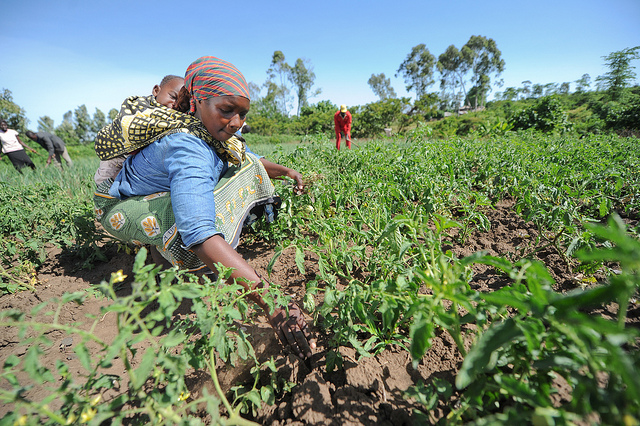In response to a call to action from the White House, the International Life Sciences Institute (ILSI) Research Foundation’s Center for Integrated Modeling of Sustainable Agriculture and Nutrition Security (CIMSANS) has announced a new partnership to analyze how food systems can help achieve sustainable nutrition security.
The partnership between CIMSANS, the Agricultural Model Intercomparison and Improvement Project (AgMIP), and others will help convene resources and expertise to strengthen the scientific evidence base on building resilience to and mitigating the impact of climate change. Using a novel methodology, the partnership will assess food systems, including all of the world’s important staple and non-staple foods, based on a set of seven sustainability metrics.
IFPRI is a key partner to both AgMIP and CIMSANS, and Mark Rosegrant, director of IFPRI’s Environment and Production Technology Division, serves as Chair of the CIMSANSAdvisory Council.
Climate change presents a huge obstacle for already overburdened food systems to sustainably feed the world’s population. According to a recent article in The Guardian, the situation is not likely to improve. The White House Climate Data Initiative is an effort to bring together open government data with partnering institutions to develop data-driven planning and tools that help build resilience in the agriculture sector.
The CIMSANS partnership’s assessment methodology will empower those working in agriculture and other sectors impacted by climate change by giving them the tools to make better-informed decisions to improve nutrition and sustainability for generations to come.
With contributions from Marcia MacNeil.
For more information on CIMSANS, see the ILSI Research Foundation CIMSANS website.
For more information on the White House Climate Data Initiative, please see the White House Factsheet.
For more information on the CIMSANS partnership, see the CIMSANS news page.
For more research behind the CIMSANS collaboration see the ILSI Research FoundationCIMSANS working paper, “Assessing Sustainable Nutrition Security:
The Role of Food Systems”.
Recent synergies in food security research from IFPRI include projects that have delved into global futures and strategic foresight and technology as a pathway for food security in a world of natural resource scarcity.







